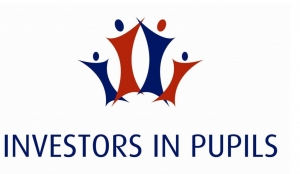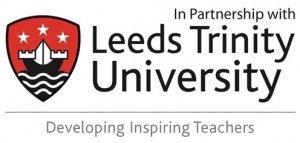More in this section...
Welcome to the Religion & Ethics Department

Curriculum Intent
The principal vision for RE at Harrogate High School is to equip our students with an ambitious and aspirational, knowledge-rich curriculum.
Students will engage in a responsive and relevant curriculum by means of challenging systematic enquiry into human questions; the mean and purpose of life, beliefs about God, ultimate reality, which religion and worldviews address . We have the intention to develop understanding of mutual respect and gain the skills needed to appreciate and appraise varied responses, as well as allowing students to explore their own views. Students will acknowledge the value of wisdom, texts and other evidence to build the necessary vocabulary enabling an aptitude of dialogue, to positively participate in society, raising their spiritual, moral, cultural and religious awareness. In developing these qualities they will grow courage, curiosity, achieving a level of critical awareness demonstrated in good citizenship. In doing so, they challenge stereotypes by approaching difference positively in both their local and wider community.
Subject Definition
The study of religion, religious and non-religious world views as well as their influence on the individual and society.
RE should enable students to:
- Know about and understand a range of religions and worldviews.
- Express ideas and insights about the nature, significance and impact of religions and worldviews.
- Gain and deploy the skills needed to engage seriously with religions and worldviews.
Subject Staffing
Head of Department: Ms K Wilson
Teachers: Mrs A Warner
How Religion & Ethics Links to our CARES Values
As a department we are passionate about equipping students with the necessary skills and knowledge to be thoughtful considerate citizens; highlighted in our varied schemes of work. Cooperative learning allows students develop speaking and listening skills and to respect other opinions, as they form their own, respecting others and developing self-control. Students are given a non-bias approach to RS in which they are encouraged to develop their own spiritual thoughts and consider the social and cultural choices of themselves and others. This takes particular focus in KS3 when studying topics such as; Is religion a power of peace or conflict?’
How Religion & Ethics Links to British Values
RE covers all aspects of British values, At KS3 students evaluate the use of Human Rights and the importance of tolerance and understanding those different from ourselves when studying topics such as Islamophobia, students are also made aware of the dangers of extreme views and the necessary precautions to avoid this behaviour.
KS3 Overview
During Key Stage 3: Students will extend and deepened their knowledge and understanding of a range of religions and worldviews, recognising their local, national and global context. Building on their prior learning, they will appreciate religions and worldviews in a systematic way. They will draw on a wide range of subject specific language, confidently and flexibly, learning to use the concepts of religious study to describe the nature of religion. Students will understand how beliefs influence the values and lives of individuals and groups, and how religions and worldviews have an impact on wider current affairs. They will be able to appraise the practices and beliefs they study with increasing discernment based on analysis, interpretation, and evaluation, developing their capacity to articulate well-reasoned positions engaging in philosophical and ethical debate.
More specifically:
- Students will be able to explain the religions and worldviews which they encounter and experience, clearly, reasonably, and coherently; evaluate them and make links between prior and existing knowledge drawing on philosophical, ethical teachings and concepts.
- To have developed the ability to think critically, ethically, and philosophically
- To confidently use subject specific vocabulary within both verbal and written responses, writing and speaking like a Theologian
- To understand the value of, and to apply sources of wisdom to evaluate ultimate questions
- To be able to critically analyse the varying answers to the questions such as ‘What is death?’
- To be able to explain a range of beliefs regarding the possibility of life after death e.g., Eastern religions comparison, the concept of reincarnation etc to Abrahamic and non-religious responses to these
- To be able to explain various response, referring to sources of wisdom to the questions such as ’when does life begin? This could be religious text, art, secular music, literature referred to in Y8.
- To be able to explain interpretations of views of life after death; literal or metaphorical, acknowledging diversity within traditions e.g., Denomination differences in attitudes; Jehovah's Witnesses
- To critically analyse the impact these various views have on ethical dilemmas e.g. abortion and euthanasia
- To be able to analyse the changing attitudes to gender roles, women's’ role in religion
- To understand that the UK is a multi-ethnic and multi faith society and describe how the government and religions work to promote community cohesion and religious pluralism in the UK
- To be able to explore how and why religious organisations and secular groups promote harmony and express you own opinions on racism and discrimination in the UK.
- To critically respond to how issues covered in this unit have been presented in the media and whether its presentation is fair to religious believers.
Y7:
- Baseline Assessment
- Term 1: Why do some people believe God exists?
- Term 2: Morality, how do we know what is right?
- Term 3: Religious Rebels: Those who fought for their own and other beliefs.
- End of Year Assessment
Y8:
- Term 1: Abrahamic Foundations
- Term 2: Expressing the inexpressible. Spiritualty through the Arts.
- Term 3: Is religion a power for peace or cause of conflict in the world today?
- End of year assessment
Y9:
- Term 1: Life beyond Living
- Term 2- Religion and Community Cohesion
- Term 3- Alternative religions
- End of year assessment
KS4 Overview
All students should extend and deepen their knowledge and understanding of religions and worldviews (including non-religious worldviews), explaining local, national and global contexts. Building on their prior learning, they appreciate and appraise the nature of different religions and worldviews in systematic ways. They should use a wide range of concepts in the field of Religious Studies confidently and flexibly to contextualise and analyse the expressions of religions and worldviews they encounter. They should be able to research and investigate the influence and impact of religions and worldviews on the values and lives of both individuals and groups, evaluating their impact on current affairs. They should be able to appreciate and appraise the beliefs and practices of different religions and worldviews with an increasing level of discernment based on interpretation, evaluation and analysis, developing and articulating well-reasoned positions. They should be able to use different disciplines of religious study to analyse the nature of religion.
Students will work towards completing EdexceL GCSE in RS. Specifically, students should be taught to, for example:
- Investigate and analyse beliefs and practices of religions and worldviews (including non-religious worldviews) using a range of arguments and evidence to evaluate issues and draw balanced conclusions.
- Synthesise their own and others’ ideas and arguments about sources of wisdom and authority using coherent reasoning, making appropriate references to their historical, cultural and social contexts.
- Develop coherent and well-informed analysis of diversity in the forms of expression and ways of life found in different religions and worldviews.
- Account for varied interpretations of commitment to religions and worldviews and for responses to profound questions about the expression of identity, diversity, meaning and value. • Argue for and justify their own positions with regard to key questions about the nature of religion, providing a detailed evaluation of the perspectives of others.
- Use a range of research methods to examine and critically evaluate varied perspectives and approaches to issues of community cohesion, respect for all and mutual understanding.
Paper 1 - Religion and Ethics - Christianity
- Belief in God
- Marriage and the Family
- Living the Religious Life
- Matters of Life and Death
Paper 2 - Religion, Peace and Conflict - Islam
- Belief in God
- Crime and Punishment
- Living the Religious Life
- Peace and Conflict
Enhanced Curriculum
- Revision Master Classes
- External Trips and Visitors











